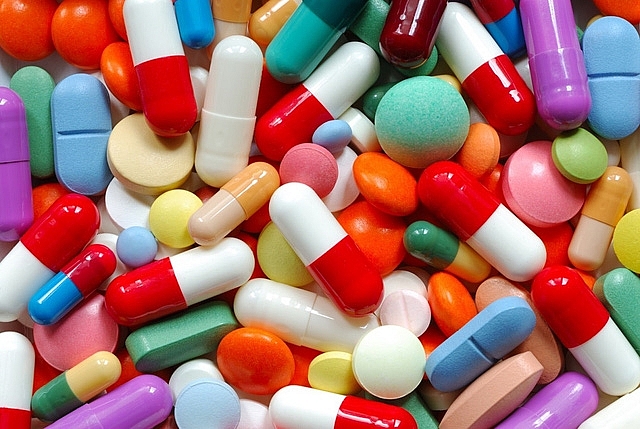Sanofi activities face rigid regulations
 |
| Sanofi activities face rigid regulations, illustration photo - source: internet |
After celebrating the first batch of direct medicinal import last month, Sanofi Vietnam is planning to work with more local distributors to ensure the distribution network for new imports of prescription, over-the-counter drugs, and vaccination products. Sanofi is co-operating with two local distributors, Hanoi Pharmaceutical and Medical Equipment Import-Export JSC and Vimedimex Medi-Pharma JSC, to distribute imported pharmaceutical products in Vietnam. Le Thi Kim Ngan, head of supply chain excellence and regional export centre under Sanofi’s Asia JPAC, told VIR, “Sanofi will also work with more distributors including Thuan Gia, Kim Do, and Saigon Pharmaceutical Company in the near future. The process of getting them on board with us is taking place now.”
Sanofi has also inaugurated a good storage practice-standard drug warehouse facility in Ho Chi Minh City, which will be utilised to accommodate imported batches from overseas. Distributors will receive medicinal products directly at the warehouse.
“Although our authorised distributors retain ultimate responsibility for ensuring that the operations conducted comply with legal and Sanofi’s requirements, Sanofi will still work with distributors to ensure good quality management,” Ngan added. “In accordance with Sanofi’s supply chain policy, Sanofi continuously checks and monitors its inventory status by week and by month so that we can manage and activate our importation and distribution plans effectively. Sanofi also constantly updates and follows the orders of distributors and our partners’ distribution plans, so that we can adjust the distribution to meet the needs of the Vietnamese market.”
Despite Sanofi’s moves to ensure good quality management during distribution, concerns over quality are putting pressures on the firm and other multinational corporations (MNCs) who are seeking a licence to import pharmaceuticals in Vietnam directly.
Vaibhav Saxena, lawyer at Vietnam International Law Firm said, “The challenge comes as wholesalers of imported drugs and medicinal ingredients can distribute such items directly to the health facilities and drug-trading establishments without being controlled by the importing entity, which is not entitled to distribute them in Vietnam.”
The reason for restrictions is flowing from the roadmaps and regulations pertaining to commitments of Vietnam to the World Trade Organization on goods trading and directly related activities thereto for foreign-invested enterprises (FIEs) in Vietnam.
The right to distribute pharmaceutical products is one of the rights not granted for FIEs in Vietnam. Therefore, in order to distribute the drugs, companies such as Sanofi Vietnam are required to work with local wholesalers that distribute the drugs or medicinal ingredients into the local market.
Currently, not all local pharma companies have a qualified distribution infrastructure, but local leaders like Traphaco JSC, Imexpharm Pharmaceutical JSC, Domesco Medical Import Export JSC, and Hau Giang Pharmaceutical JSC have nationwide distribution networks with qualified warehouses and storages.
Meanwhile, the likes of Huan Gia, Kim Do, and Sapharco are not in such a prominent position in the pharmaceutical market, without the large and wide distribution network that the big Vietnamese leaders enjoy.
Ccompetition among MNCs in contracts with local wholesalers is expected to stiffen in the months to come as more MNCs get the direct import licence. In the latest developments, Swiss-headquartered Novartis has become the second lawful multinational importer in Vietnam’s pharmaceutical industry after Sanofi.
Currently, about 800 foreign companies are allowed to provide, but not directly distribute pharmaceuticals in Vietnam. According to the Ministry of Health, most of the MNCs in Vietnam are now applying to get such a licence to import drugs to Vietnam directly. GlaxoSmithKline Pte., Ltd. and many others may be in the queue.
The Vietnam pharmaceutical market was worth about $3.5 billion in 2015 and is expected to double by 2020 with a compound annual growth rate of 14 per cent. While the high growth rate is attracting global pharmaceutical companies, there are not many exclusive contract manufacturers; almost all of the pharma companies provide contract manufacturing services based on demand.
Since the Vietnamese government is promoting local production to meet 80 per cent of the domestic demand, pharma companies that are currently importing and selling drugs are expected to partner with the local manufacturers. The pharmaceutical contract manufacturing market is, therefore, likely to flourish in the coming years.
What the stars mean:
★ Poor ★ ★ Promising ★★★ Good ★★★★ Very good ★★★★★ Exceptional
Related Contents
Latest News
More News
- State corporations poised to drive 2026 growth (February 03, 2026 | 13:58)
- Why high-tech talent will define Vietnam’s growth (February 02, 2026 | 10:47)
- FMCG resilience amid varying storms (February 02, 2026 | 10:00)
- Customs reforms strengthen business confidence, support trade growth (February 01, 2026 | 08:20)
- Vietnam and US to launch sixth trade negotiation round (January 30, 2026 | 15:19)
- Digital publishing emerges as key growth driver in Vietnam (January 30, 2026 | 10:59)
- EVN signs key contract for Tri An hydropower expansion (January 30, 2026 | 10:57)
- Vietnam to lead trade growth in ASEAN (January 29, 2026 | 15:08)
- Carlsberg Vietnam delivers Lunar New Year support in central region (January 28, 2026 | 17:19)
- TikTok penalised $35,000 in Vietnam for consumer protection violations (January 28, 2026 | 17:15)

 Tag:
Tag:




















 Mobile Version
Mobile Version